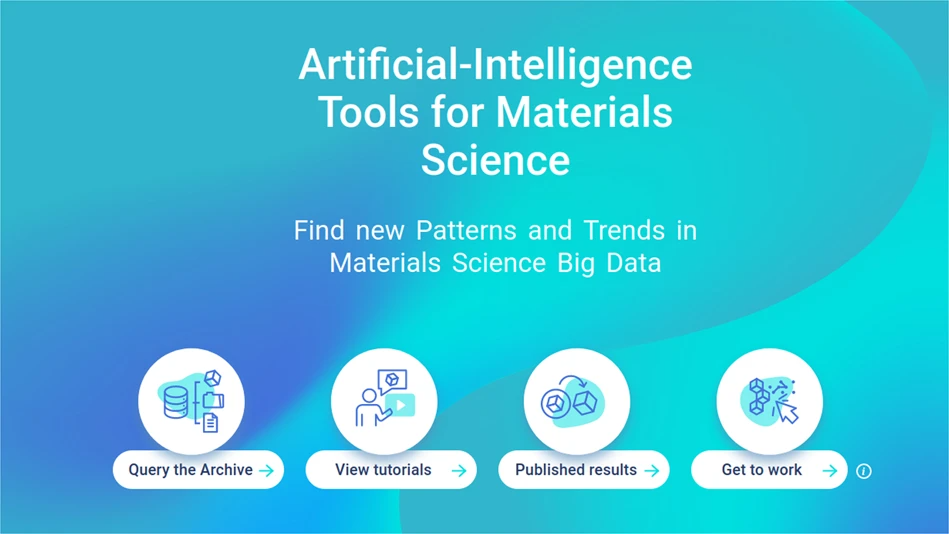Difference between revisions of "Template:Article of the week"
Shawndouglas (talk | contribs) (Updated article of the week text) |
Shawndouglas (talk | contribs) (Updated article of the week text) |
||
| Line 1: | Line 1: | ||
<div style="float: left; margin: 0.5em 0.9em 0.4em 0em;">[[File:Fig1 | <div style="float: left; margin: 0.5em 0.9em 0.4em 0em;">[[File:Fig1 Sbailò npjCompMat22 8.png|240px]]</div> | ||
'''"[[Journal: | '''"[[Journal:The NOMAD Artificial Intelligence Toolkit: Turning materials science data into knowledge and understanding|The NOMAD Artificial Intelligence Toolkit: Turning materials science data into knowledge and understanding]]"''' | ||
[ | We present the Novel Materials Discovery (NOMAD) [[Artificial intelligence|Artificial Intelligence]] (AI) Toolkit, a web-browser-based infrastructure for the interactive AI-based analysis of [[materials science]] data under FAIR (findable, accessible, interoperable, and reusable) data principles. The AI Toolkit readily operates on FAIR data stored in the central server of the NOMAD Archive, the largest database of materials science data worldwide, as well as locally stored, user-owned data. The NOMAD Oasis, a local, stand-alone server can also be used to run the AI Toolkit. By using [[Jupyter Notebook]]s that run in a web-browser, the NOMAD data can be queried and accessed; [[data mining]], [[machine learning]] (ML), and other AI techniques can then be applied to analyze them ... ('''[[Journal:The NOMAD Artificial Intelligence Toolkit: Turning materials science data into knowledge and understanding|Full article...]]''')<br /> | ||
''Recently featured'': | ''Recently featured'': | ||
{{flowlist | | {{flowlist | | ||
* [[Journal:Quality control in the clinical biochemistry laboratory: A glance|Quality control in the clinical biochemistry laboratory: A glance]] | |||
* [[Journal:Shared metadata for data-centric materials science|Shared metadata for data-centric materials science]] | * [[Journal:Shared metadata for data-centric materials science|Shared metadata for data-centric materials science]] | ||
* [[Journal:A metabolomics and big data approach to cannabis authenticity (authentomics)|A metabolomics and big data approach to cannabis authenticity (authentomics)]] | * [[Journal:A metabolomics and big data approach to cannabis authenticity (authentomics)|A metabolomics and big data approach to cannabis authenticity (authentomics)]] | ||
}} | }} | ||
Revision as of 17:02, 5 February 2024
We present the Novel Materials Discovery (NOMAD) Artificial Intelligence (AI) Toolkit, a web-browser-based infrastructure for the interactive AI-based analysis of materials science data under FAIR (findable, accessible, interoperable, and reusable) data principles. The AI Toolkit readily operates on FAIR data stored in the central server of the NOMAD Archive, the largest database of materials science data worldwide, as well as locally stored, user-owned data. The NOMAD Oasis, a local, stand-alone server can also be used to run the AI Toolkit. By using Jupyter Notebooks that run in a web-browser, the NOMAD data can be queried and accessed; data mining, machine learning (ML), and other AI techniques can then be applied to analyze them ... (Full article...)
Recently featured:










